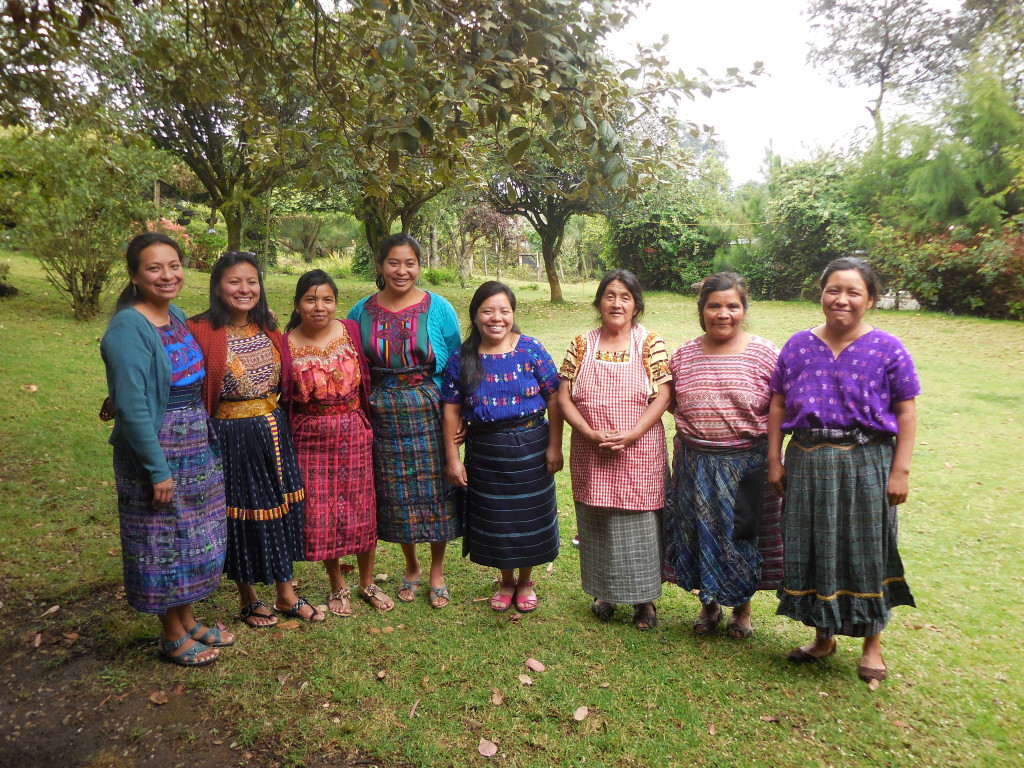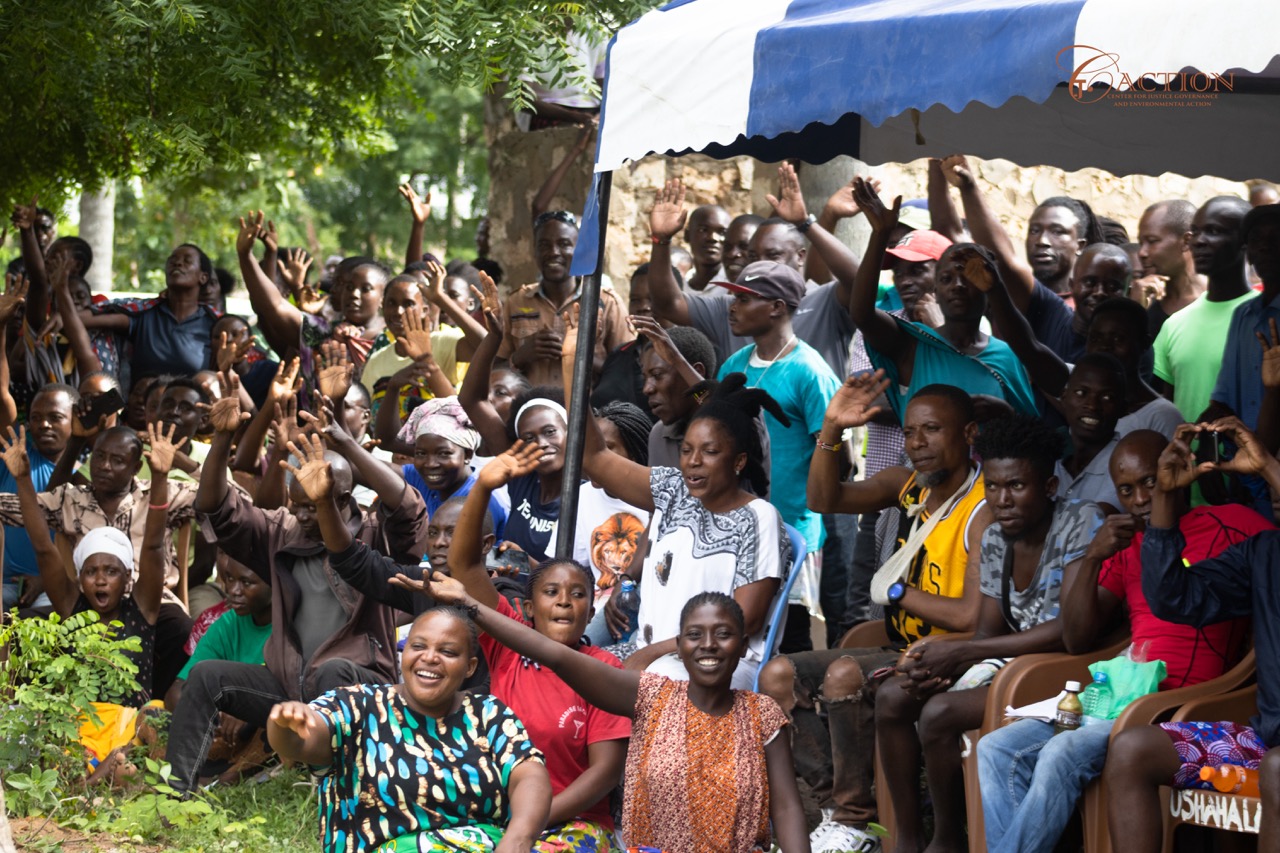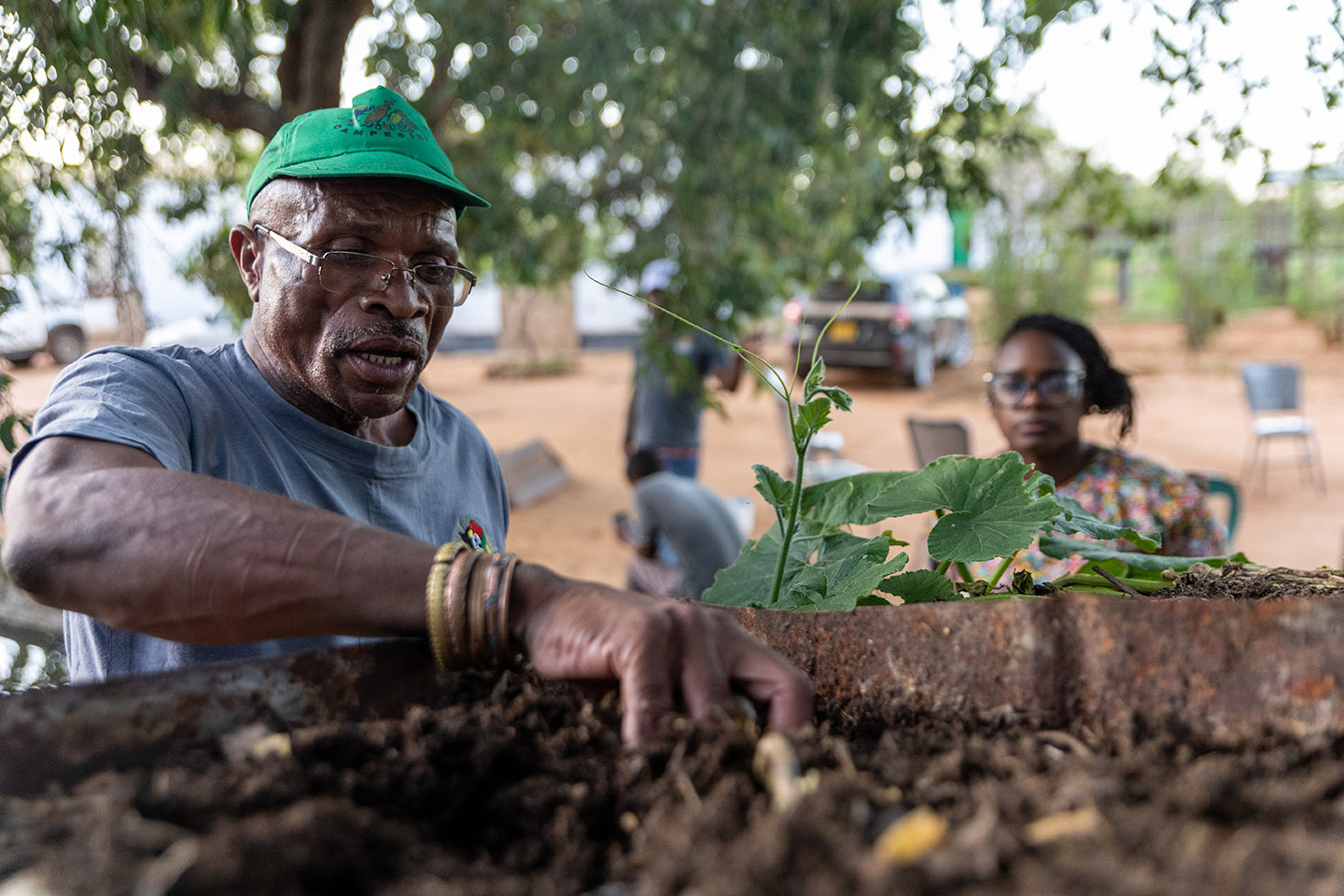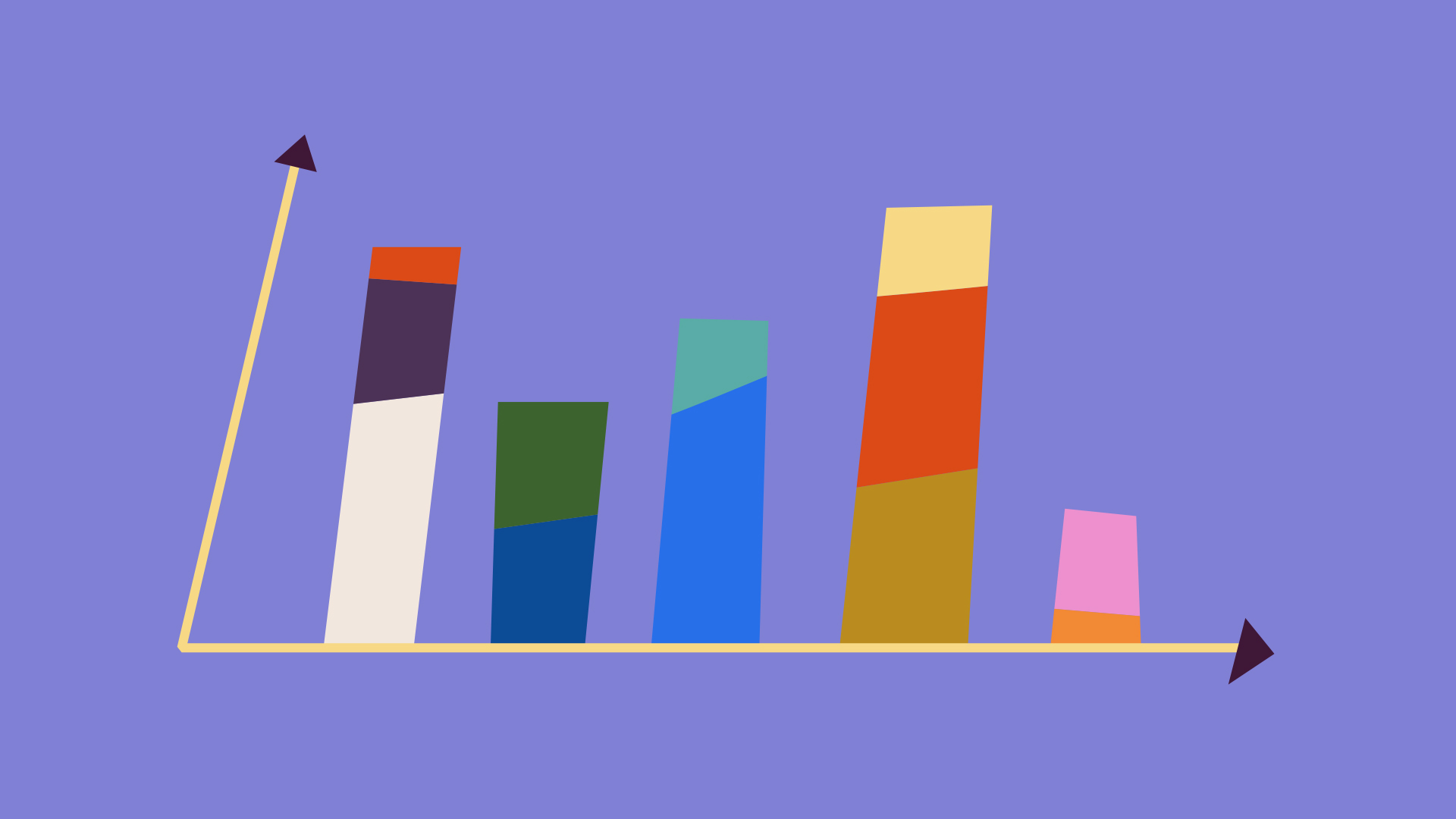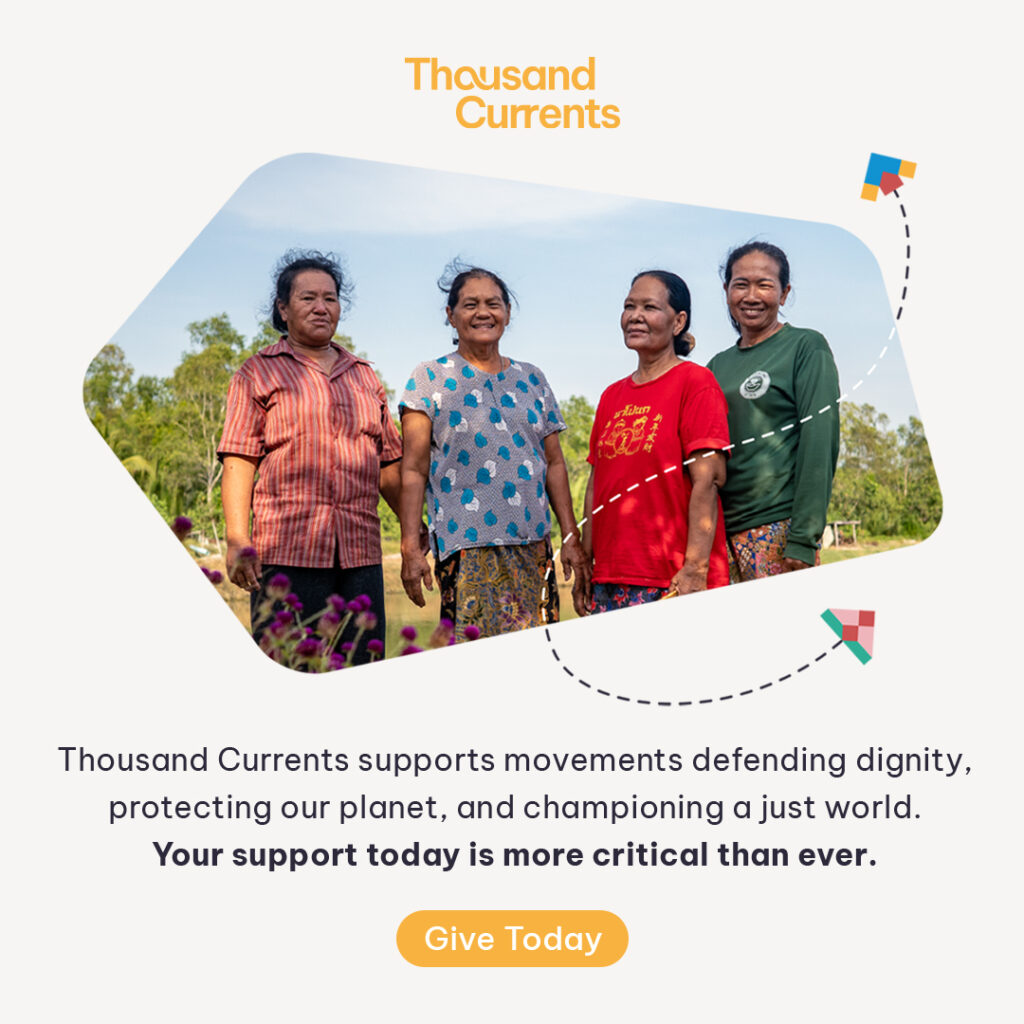AFEDES was founded in 1998 to address the problem of chronic malnutrition and lack of educational opportunities among children and women of the department of Sacatepequez.
Later we realized the importance of promoting the rights of women as they were continually violated at every level. It was necessary for women to regain our self-esteem, know our rights, stop violence against us. So we began to work for our freedom and autonomy. We did this alongside promoting economic enterprises through loans and savings, technical and business training.
Over the years as we were empowered, we realized that the problems we face are structural, and that they deal with patriarchy, capitalism and colonialism; our actions that contributed to abolishing patriarchy were clear, but nevertheless [these actions] had contradictions and inconsistencies in relation to the economic enterprises. We believed that they somehow responded to the principles of capitalism, and actually did not contribute much to women’s economy.
So in 2006 we decided that the process of training not only had to be about self-esteem, gender, and political participation, but should transcend into a process of political and ideological training to allow us to critically analyze the issues more from the root and not just the effects.
Thus in late 2006 and 2007, we decided to stop to take some time to analyze and reflect on our actions on a personal and institutional level. We realized that as women, we did not feed ourselves well. We produced just to sell, not thinking about the family consumption. We were sick. Conventional agricultural practices are polluting the environment. We live in a world where money is the main thing. Women’s caring work is not valued.
Faced with this problem, we decided to operate in line with our new thinking and political commitment, to move toward a new economy (or rather a return or recall the principles and ancestral practices of our grandparents, what we now call food sovereignty). In the short term, we decided to walk together towards organic farming training process, and later solidarity with feminist economics that question the sexual division of a labor economy. Later we started talking about economic alternatives and income-generating initiatives as resistance.
We talked about the importance of redirecting the credit portfolio to projects that help women to pursue their economic autonomy, being careful not follow the logic of capitalism. However this change led to the departure of many partners as the project made banking in communities harder, which had a very high cost to AFEDES both organizationally and financially.
Since 2007 we also decided to strengthen the ethnic identity of AFEDES, as a Kaqchikeles women’s organization. We have walked for several years growing in thinking from our experiences, analysis, and reflection.
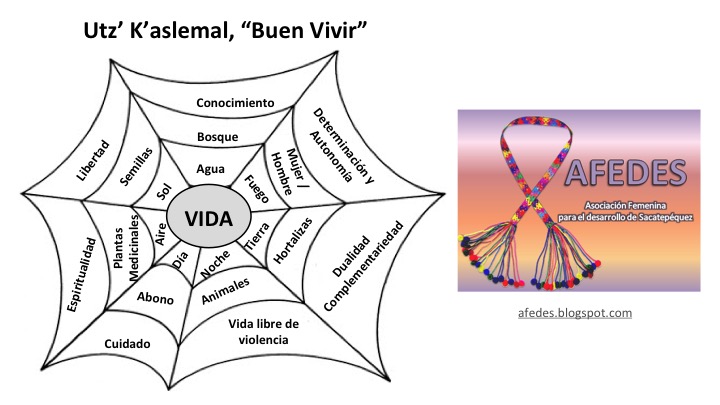
Our aspiration is the Utz K’aslemal, or “Buen Vivir,” which means a full life, of happiness. More than 500 years ago, it was broken by the imposition of a Western culture, come to blot out all our knowledge, history, and science, thus causing a great imbalance in the web of life. From the Mayan worldview, women have a special importance in restoring that balance, because we are intimately related to life, nature, and the cosmos, which is a different concept of seeing the world.
Today we claim our identity, our history as women of the Mayan people. We realize that our processes are nothing new, rather are the recovery of our ancestral principles and practices that are summarized in a deep love of life.

